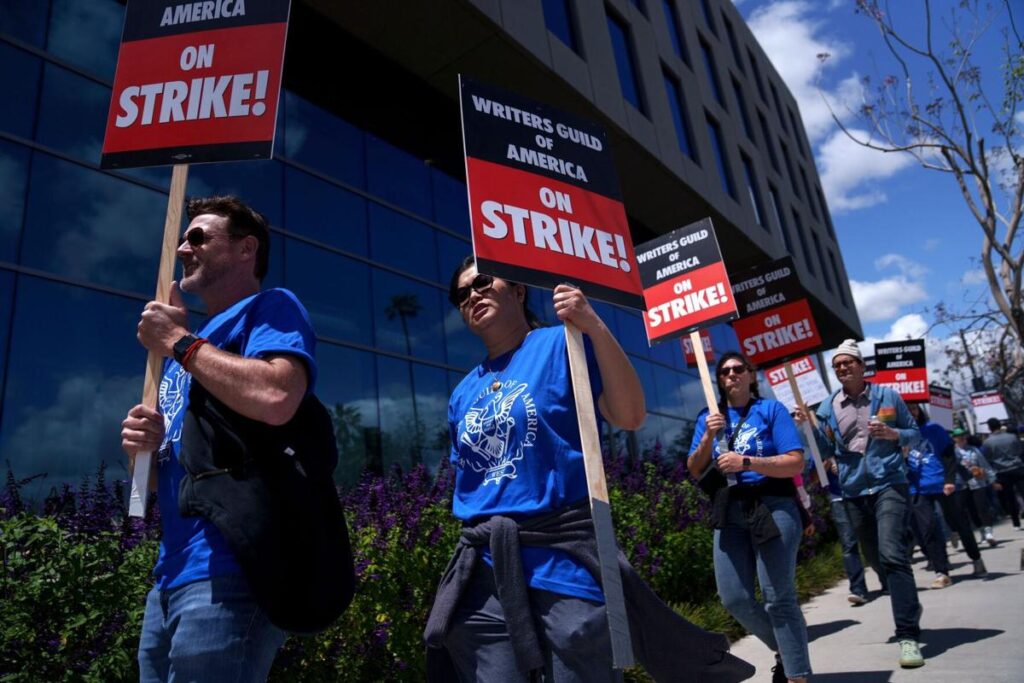Writers and Actors’ Strikes Over; Film and TV Projects Set to Roll Again.
After an unprecedented five-month-long strike that had the film and television industry at a standstill, Hollywood studios are now poised to recommence production on their major projects. The strike, which saw both writers and actors advocating for improved compensation and conditions in the streaming age, has concluded, heralding the return of creativity and action to the entertainment world.
The Writers Guild of America (WGA) reached a tentative agreement with the Alliance of Motion Picture and Television Producers (AMPTP) on September 24, 2023, following five days of intense negotiations. This pact, greenlit by the WGA’s leadership on September 26, marked significant gains for writers on critical issues like residuals, data transparency, artificial intelligence, and mini-rooms. Writers were allowed to resume work on September 27, while a ratification vote was held among the union’s 11,500 members.
Following a similar trajectory, the Screen Actors Guild-American Federation of Television and Radio Artists (SAG-AFTRA) reached a tentative agreement with the AMPTP on October 8, 2023, after three weeks of deliberations. This agreement, receiving the board’s approval on October 9, introduced enhancements for actors concerning wages, health and pension benefits, streaming compensation, and diversity and inclusion. The actors were set to conclude their strike on October 10, pending a membership vote.
The dual strikes had a substantial impact on the film and television industry, causing disruptions and delays to numerous projects across genres and platforms. Productions such as “Deadpool 3,” “Mission: Impossible 8,” “Beetlejuice 2,” “Captain America: Brave New World,” “Stranger Things,” “The Handmaid’s Tale,” “Billions,” “Hacks,” and many others felt the ramifications.

With the strikes behind them, studios are eager to restart production swiftly, yet they face several challenges and complexities, including:
- Prioritizing Projects: Studios must make judicious decisions on project prioritization, factoring in contractual obligations, talent availability, market demand, and creative vision. Some projects may require minor adjustments, while others may necessitate extensive revisions.
- Negotiating with Talent: Studios will engage in negotiations with actors, writers, directors, and other crew members who might have conflicting or overlapping commitments due to the strike. Compensation demands and contract terms may also need reconsideration.
- Dealing with Backlog: The industry must manage the backlog of projects that were in pre-production or development before or during the strike. Some projects may need revitalization or revision to align with evolving industry dynamics.
- Adjusting to Changes: Studios must adapt to changes introduced by the new union agreements, particularly concerning streaming and artificial intelligence. This entails adherence to new regulations on data sharing, compensation models, and ethical standards.
Despite these challenges, studios are optimistic about their ability to restart production efficiently and to deliver high-quality content that meets audience expectations. The new agreements are seen as fostering a more collaborative and respectful relationship between studios and unions, promising a brighter future for the industry.
Resources:
1.https://www.theguardian.com/culture/2023/sep/26/hollywood-writers-strike-ends-studio-deal
2.https://www.bbc.com/news/world-us-canada-66932556
4.https://www.yahoo.com/entertainment/hollywood-studios-brace-end-strike-130000158.html
5.https://www.britannica.com/art/history-of-the-motion-picture/The-Hollywood-studio-system